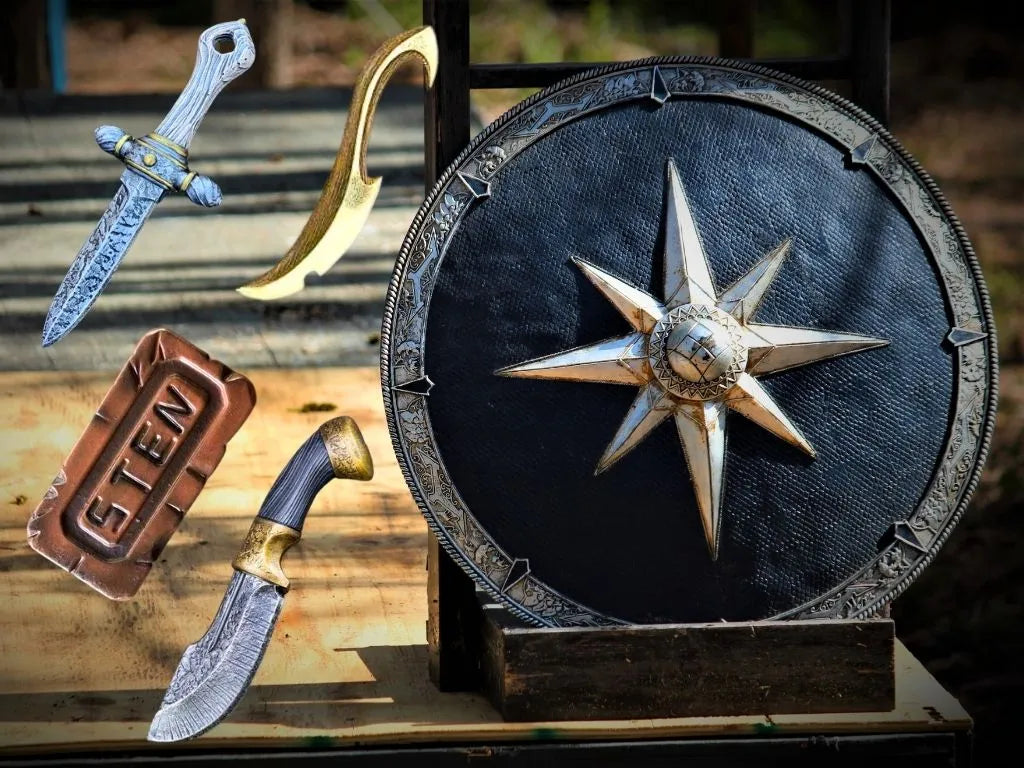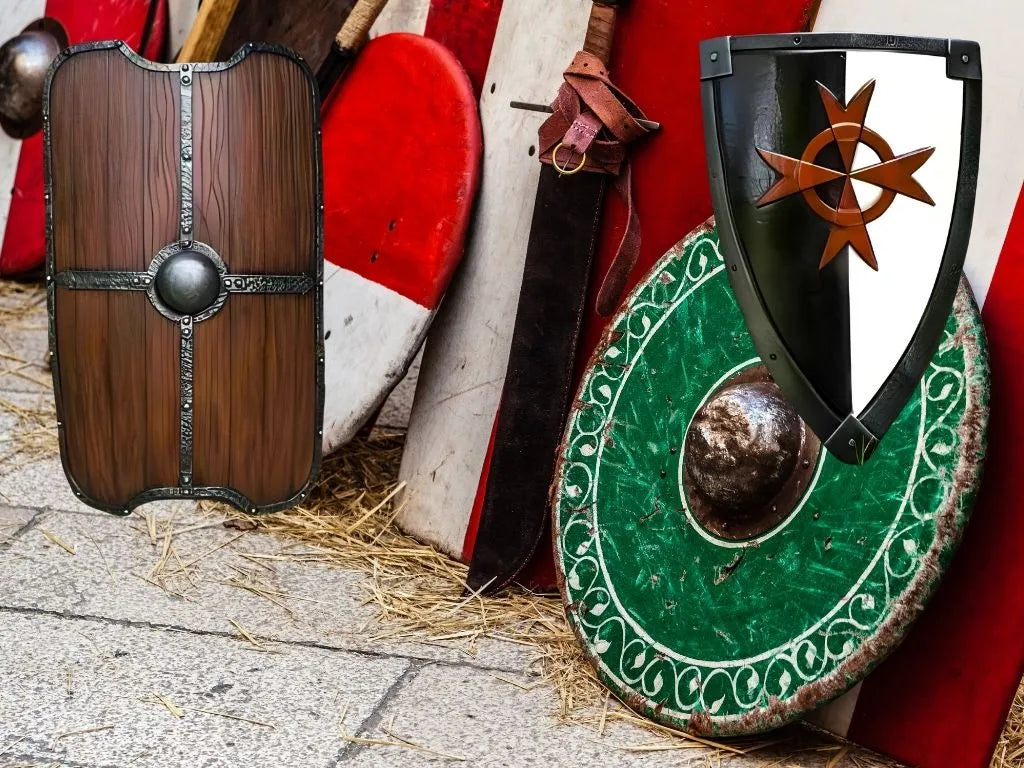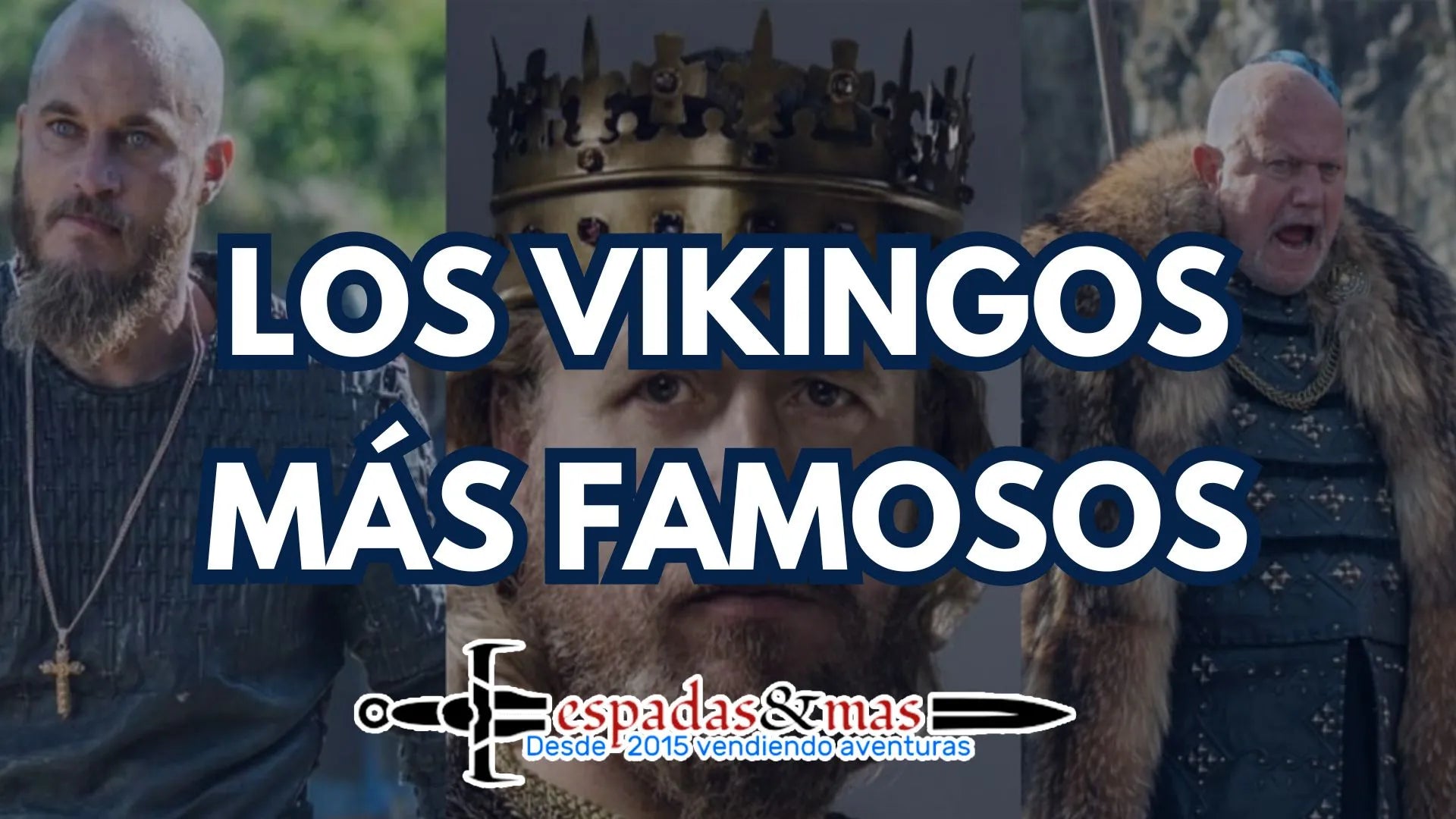Where did the Vikings come from?
Throughout history, the Vikings have captured the imagination of many with their daring expeditions, raids, and fascinating culture. However, there is often confusion surrounding the terms “Viking,” “Norse,” and “Germanic.” Although they are related, they are not synonymous. In this article, we will unravel where the Vikings came from and clarify the difference between these terms.

Check out our Vikings collection, you'll love it!
The origin of the Vikings
The Vikings were explorers, traders and warriors who emerged in northern Europe during the Middle Ages, approximately between the 8th and 11th centuries. They came mainly from the regions we now know as Scandinavia, that is, from the current countries of Norway, Sweden and Denmark.
The term " Viking " does not refer to an ethnic group or a nationality, but rather to an activity or way of life. In reality, "Viking" was a term used to describe those who engaged in exploration and plundering expeditions along the European coasts. In fact, the word "viking" comes from the Old Norse víkingr , which refers to a pirate or raider.

Check out our collection of Viking Axes!
What does it mean to be Nordic?
The term "Norse" is broader and refers to people who lived (or whose ancestry is from) in the region of Scandinavia during the Viking Age. The Norse were inhabitants of Norway, Sweden, Denmark and Iceland, and their culture, mythology and language shared a common root, which gave them a collective identity.
Unlike "Vikings", not all Norsemen were explorers or warriors. In fact, most Norsemen were farmers, fishermen, and craftsmen who lived relatively peaceful lives within their communities. So while all Vikings were Norsemen, not all Norsemen were Vikings.

The Germanic peoples: an older root
The Germanic peoples, on the other hand, are an older and more diverse ethnic group that encompasses many tribes that inhabited much of northern and central Europe before the Viking Age. This group includes the ancestors of the Scandinavians, but also other peoples such as the Goths, Franks, Saxons and Angles, who expanded and established kingdoms in other parts of Europe, not just in the north such as France, Italy or Spain.
The terms "Germanic" and "Nordic" are often confused because the Norse are descendants of ancient Germanic peoples who migrated to Scandinavia. However, not all Germanic peoples developed Norse culture, which is specific to the Scandinavian regions.
Thus, when we talk about the Vikings, we are specifically referring to those daring individuals who ventured into unknown seas in search of lands and treasures, but always with the certainty that they belonged to the Nordic world of that time.







